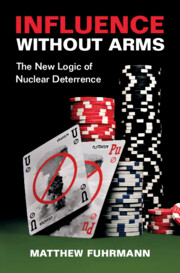Much of the history of twentieth century international law was shaped by efforts to reduce recourse to the use of force through the codification of a restrictive doctrine of ‘just war’. After September 11th, 2001, the US Administration under George W. Bush has sought to resurrect an expansive doctrine of just war, one rooted in broad moral, rather than restrictive legal, assessments of threats and punishments. Existing rules ask us to pause and inquire whether war is necessary and just. The debate over Iraq laid bare failings in these rules, requiring action. Yet the need to limit resort to war is as great as ever. Legal rules cannot prevent the use of force; nor can they prevent violations that states perceive to be in their fundamental interests. Rather, international law provides a framework against which states' actions are assessed, and imposes a heavy burden of justification. Is a given war justified as self-defense? Is a state asserting a need to create a new legal category of humanitarian intervention, based upon a responsibility to protect? Does it claim a threat to international peace and security that would normally require Security Council action? If international law is to offer meaningful criteria for and constraints on the resort to war, the recent tendency to merge different justifications for the use of force into one category of threat prevention must be resisted.


